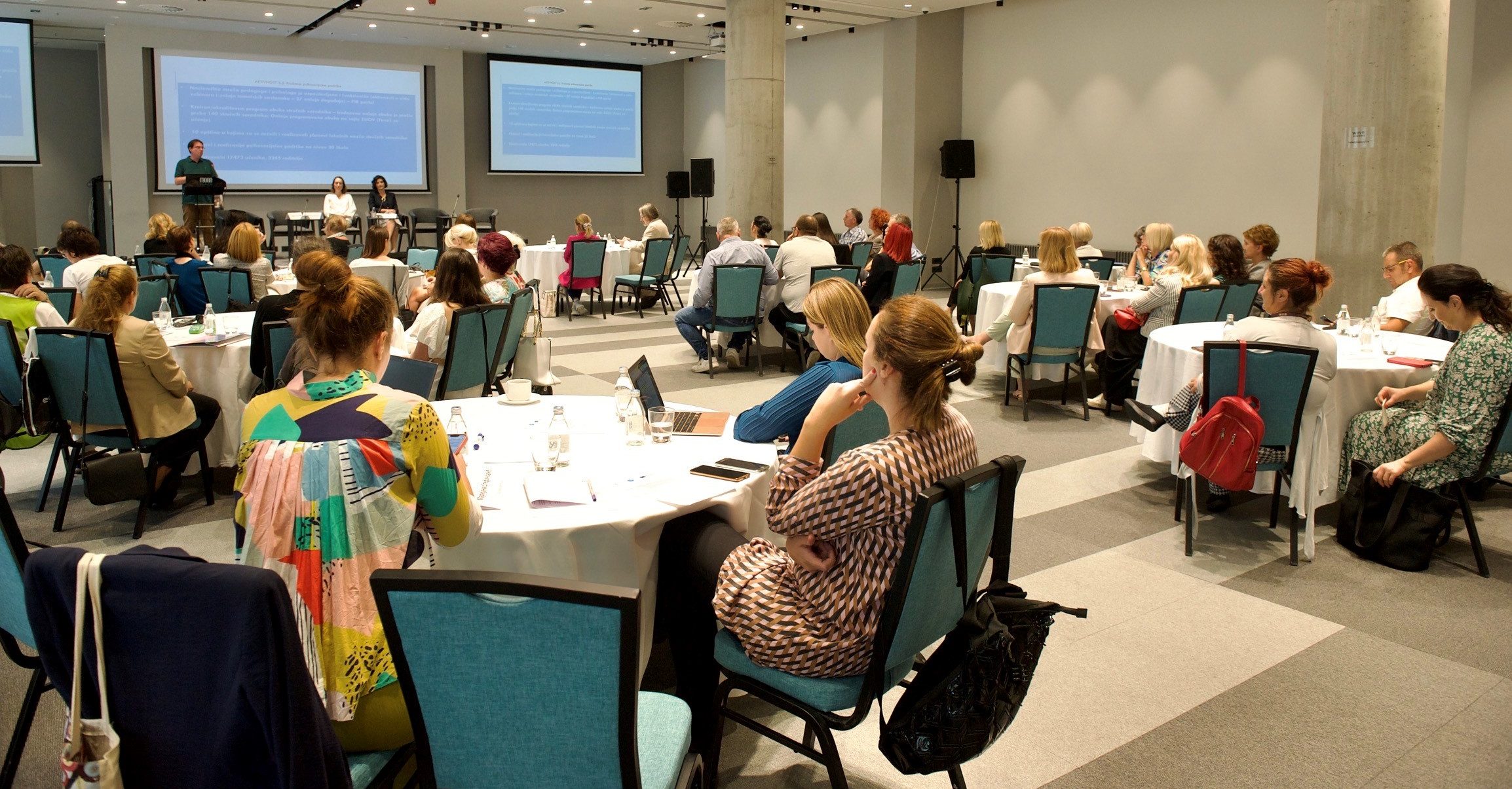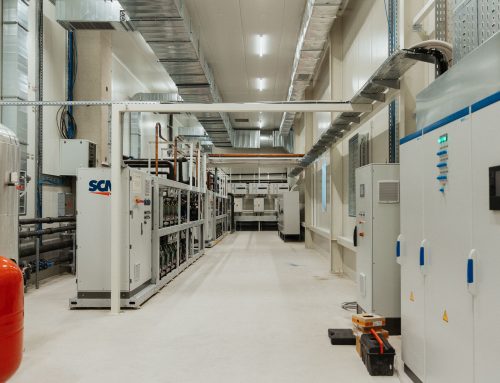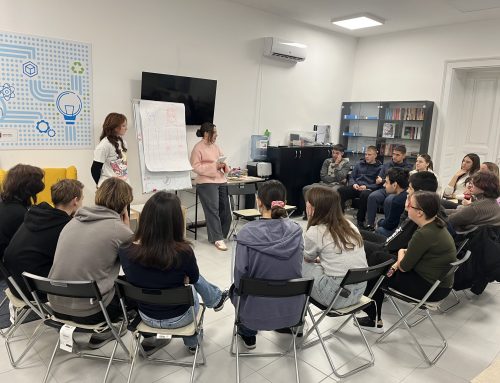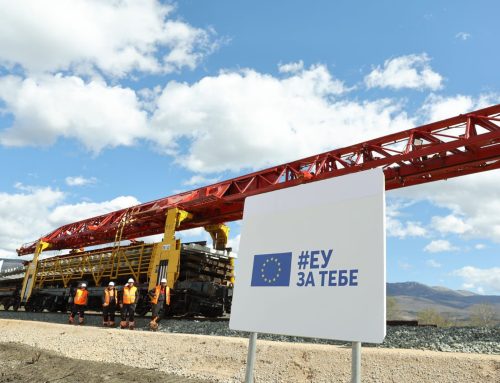In order to adapt teaching to digital education, 30 primary schools across Serbia received nearly 2,000 electronic devices, while a large number of students, including the most vulnerable, were provided with psychosocial support and learning support.
When times are tough, divisions and gaps between privileged and marginalised students become even more present. Digital education has the potential to overcome physical barriers, enabling a customized learning experience, and learning styles offer flexibility. In response to the needs of distance learning caused by the COVID-19 pandemic and the state of emergency, the project “Bridging the Digital Divide in Serbia for the Most Vulnerable Children” implemented by the Ministry of Education of the Republic of Serbia and UNICEF, with financial support from the EU. This project, worth EUR 2 million in grants, was implemented in 30 local governments throughout Serbia. As many as 30 primary schools received a total of 1,890 tablets and 60 laptops, and pedagogical assistants received another 250. 5,500 students received learning support and more than 900 teachers attended training to improve pedagogical and digital competencies.
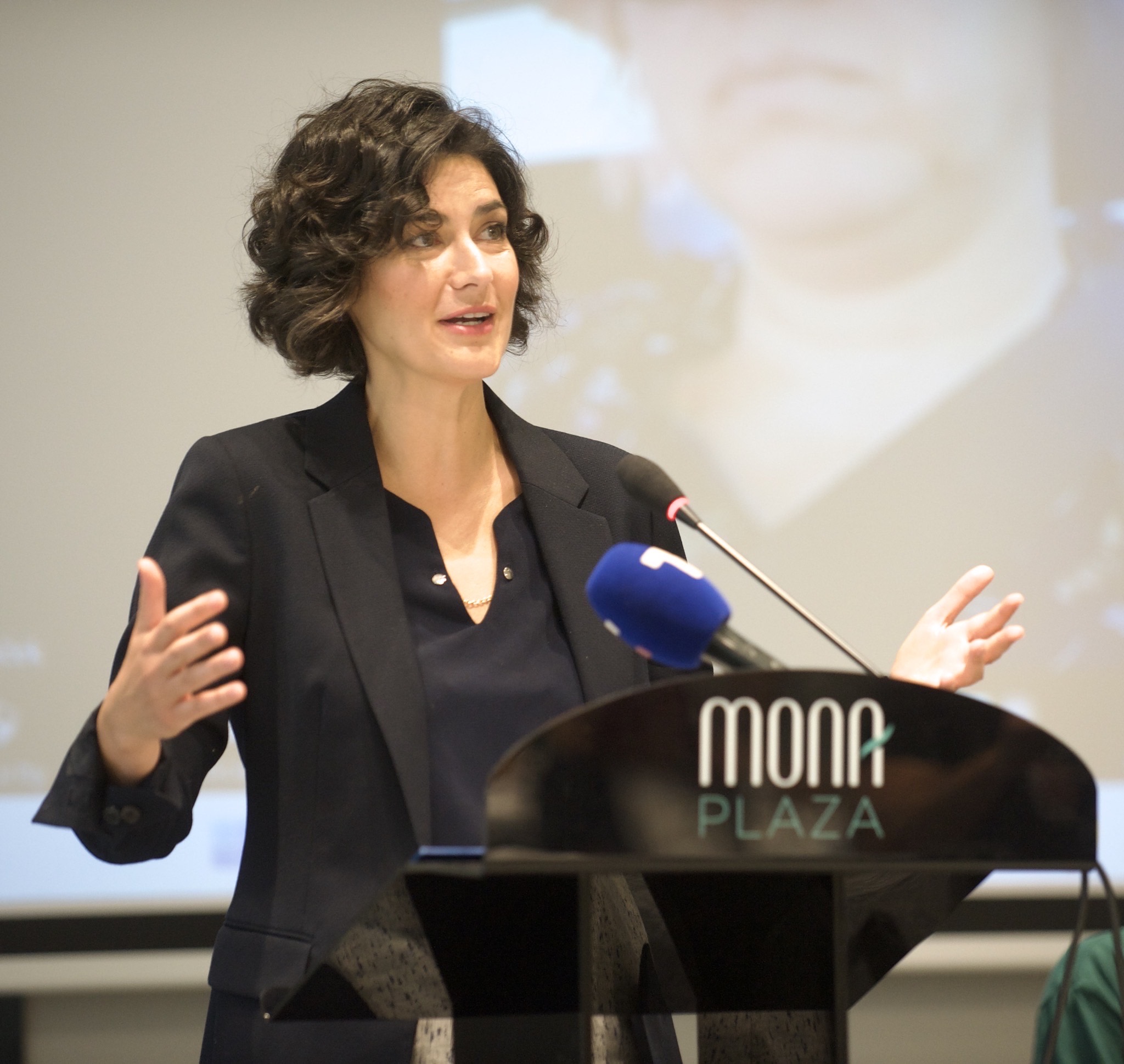
“Children and vulnerable persons are two categories of population to which the EU will always pay the greatest attention and provide support. I am very happy that through this project we have been able to support vulnerable students and their schools to overcome the learning challenges caused by the COVID-19 pandemic, thus reducing the gap between privileged and marginalized students. Digital education is not only a technological advancement, it is a powerful tool for social inclusion and exit from the disadvantaged position. The EU will continue to support actions that lead to a more inclusive and fair society including, through the upcoming campaign dedicated to bridging the digital divide, another vulnerable group – our elderly fellow citizens,” said Plamena Halacheva, Deputy Head of the Delegation of the European Union to Serbia.
This project also succeeded in supporting national institutions in consolidating the legal and institutional framework for distance learning in order to better support schools in the transition to online teaching and learning modalities. Anamarija Viček, State Secretary in the Ministry of Education, emphasized the importance of the project’s results for the further development of support for digital education. “With the support of the project, not only did we equip 30 schools that were part of the project with digital equipment, but a significant number of students who needed the most support in learning received the assistance”, added Anamarija Viček, State Secretary in the Ministry of Education.
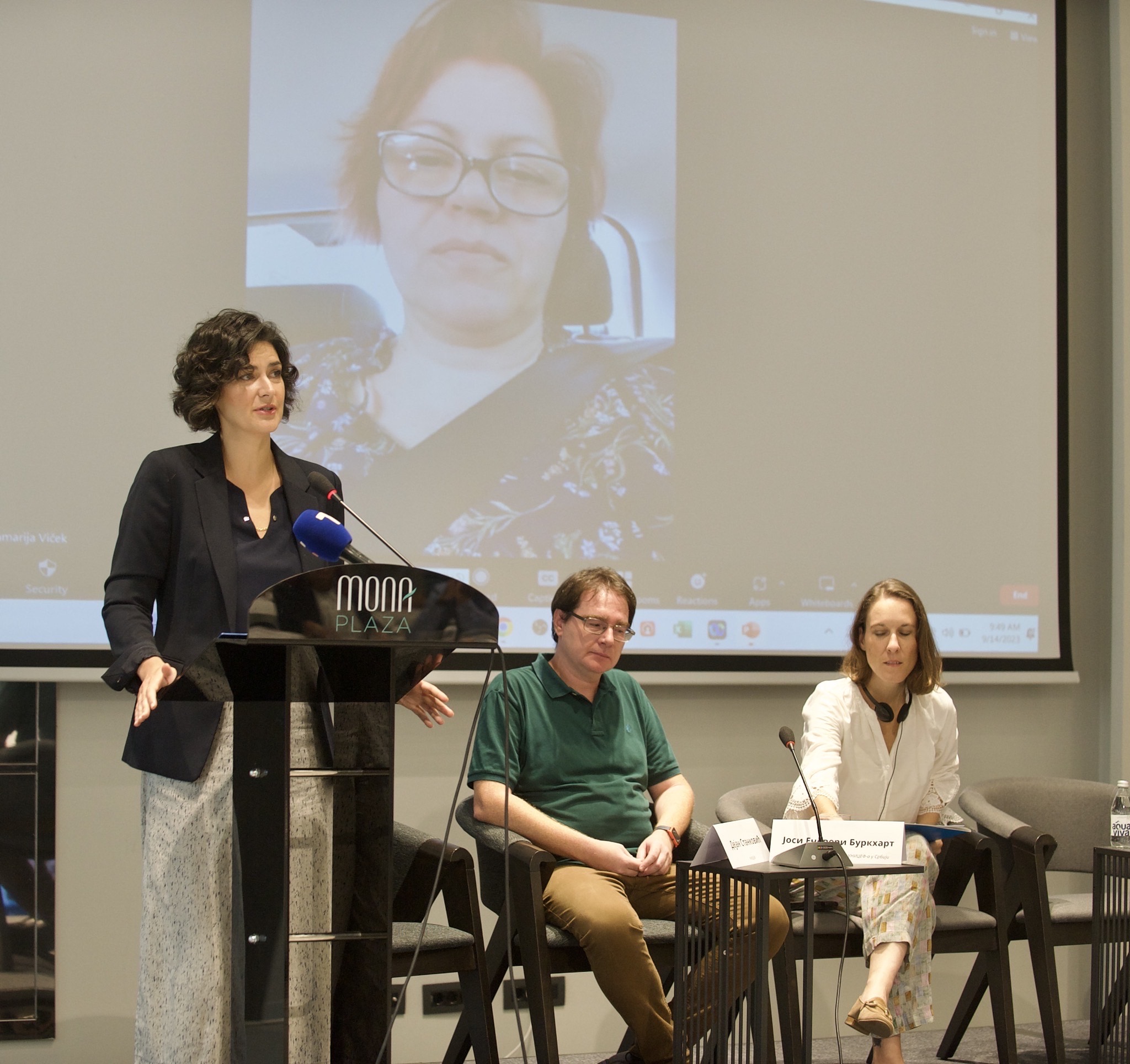
As part of the project, psychosocial support was also provided – after training, professional associates involved more than 17,000 students in numerous preventive, promotional and intervention activities, both at the school and local level in 10 municipalities. In addition, the National Network of Psychologists and Pedagogues, as an integral part of the project, organized a large number of webinars in order to support schools and local networks of professional associates.
During presentation of project results, Yosi Echeverry Burckhardt, Deputy Director of UNICEF in Serbia, stated that better student success, greater motivation to learn, a sense of well-being at school and self-confidence in relation to school expectations are just some of the achieved successes.
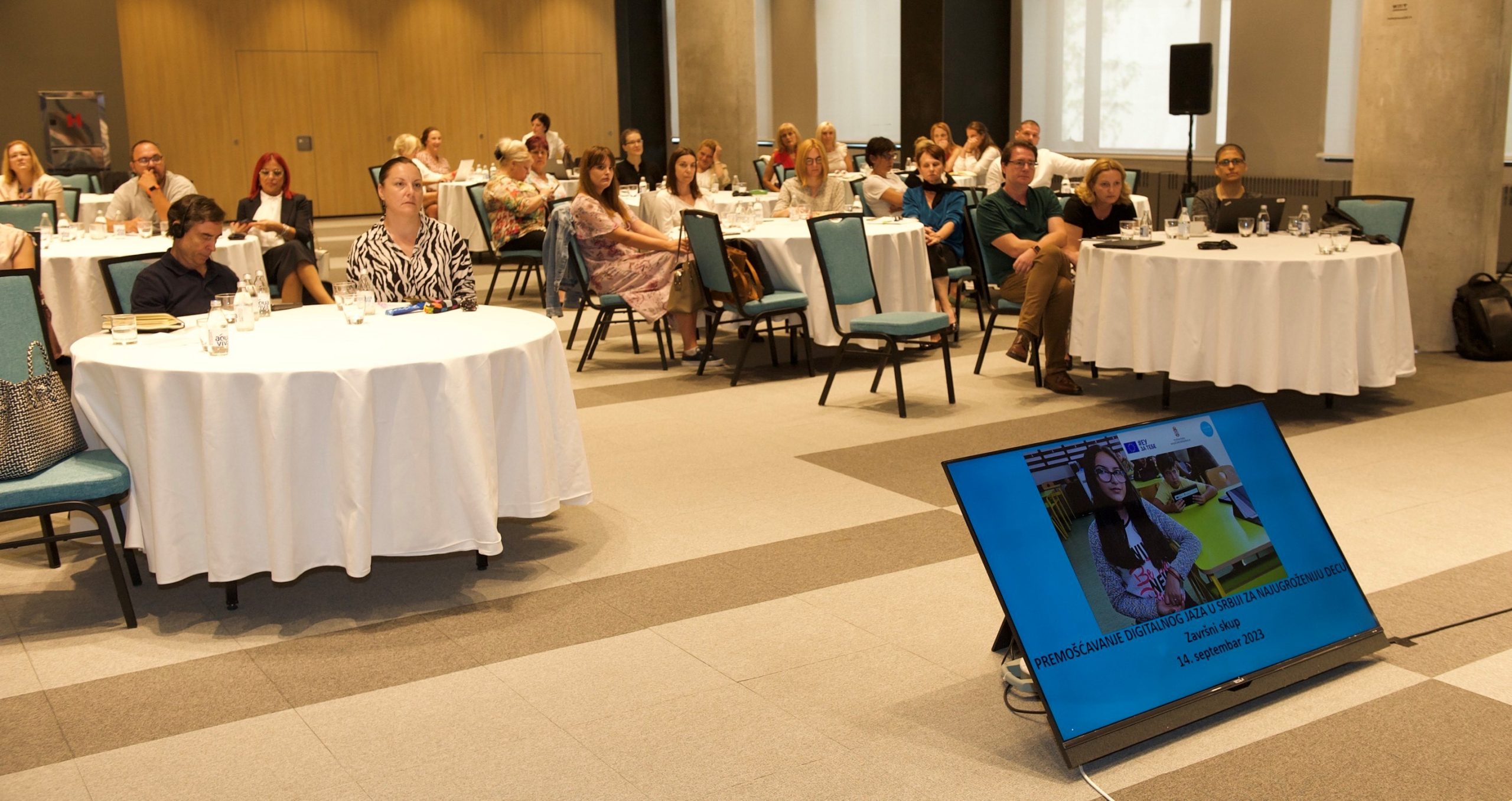
“During the pandemic, there were children without access to digital devices or the Internet, making it difficult for them to engage in distance learning. In order to respond to that situation, the Ministry of Education, the European union and UNICEF, in cooperation with schools and numerous partners, joined forces to support the most vulnerable children. Now, after the pandemic, the solutions we jointly designed not only deal with immediate challenges, but also serve as foundation for future reforms of the education system,” said Echeverry Burckhardt.
Significant progress was also achieved regarding support for further development of digital education – a new server system, successfully implemented trainings, created new courses. As part of the project, the Ministry of Education created a national aggregator of open educational resources where 6,600 descriptions of TV lessons recorded during the pandemic were entered. In this way, the availability of classes has been significantly facilitated, and key strategic directions in the field of digital education development in Serbia have also been elaborated.
Photo: UNICEF Srbija/Shubuckl

